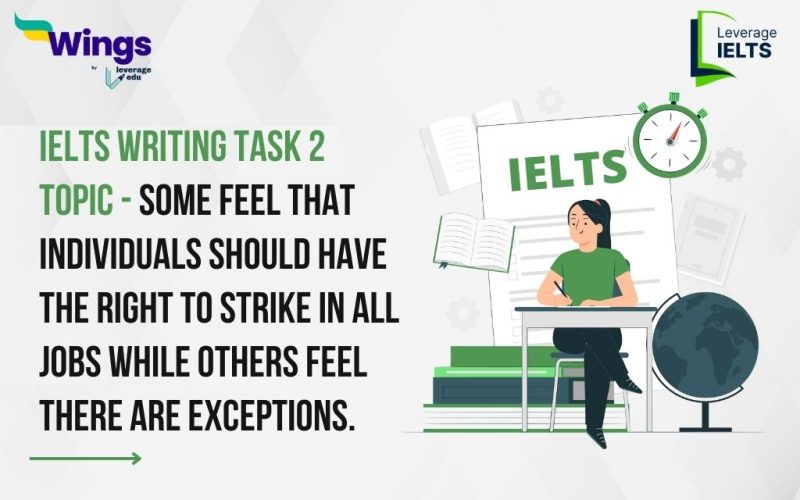Q- Some feel that individuals should have the right to strike in all jobs while others feel there are exceptions. Discuss both sides and give your own opinion.
Ans- The right to strike is a contentious issue that has long been debated by individuals and organizations worldwide. While some people believe that employees should be allowed to strike in all professions, others argue that there are certain jobs where the right to strike should not be permitted. This essay will explore both sides of the argument and provide my opinion that it should be allowed but with some limitations.
On the one hand, those who support the right to strike in all jobs argue that it is a fundamental human right to express dissatisfaction with working conditions and demand better wages and benefits. They assert that a strike is an effective way to negotiate with an employer and make them aware of the workers’ grievances.
On the other hand, opponents of the right to strike in all jobs argue that some professions, such as emergency services or public transportation, are essential services that cannot be disrupted without causing harm to society. Furthermore, some employers argue that allowing employees to strike in all professions would give too much power to the employees and harm the employer’s ability to run their businesses efficiently.
In my opinion, the right to strike should be permitted in most professions, except for those that provide essential services. In professions where a strike would cause significant harm to society, there should be limits on the right to strike. However, in most other professions, employees should have the right to strike as a means of expressing their grievances and negotiating with their employers.
In conclusion, the right to strike is a complex issue with arguments on both sides. While the right to strike is a fundamental human right, it must be balanced against the public’s right to access essential services.
Are you preparing for IELTS? Check out this video to improve your writing skills for the IELTS exam given below.👇
Download the Leverage IELTS App today.


Need help preparing for IELTS? Check out the best IELTS preparation courses in the market offered by trusted educators in a live training environment. If you want help studying abroad, call 1800-572-130.
 One app for all your study abroad needs
One app for all your study abroad needs















 45,000+ students realised their study abroad dream with us. Take the first step today.
45,000+ students realised their study abroad dream with us. Take the first step today.